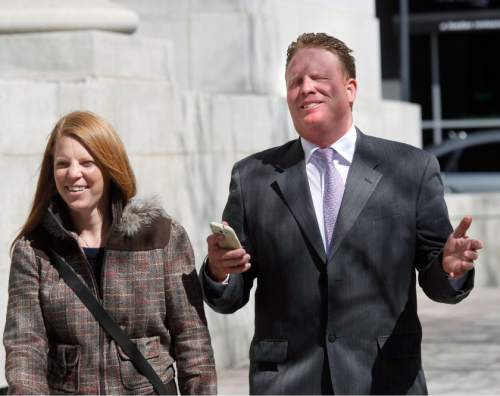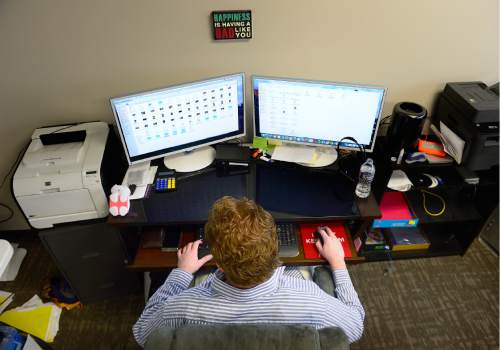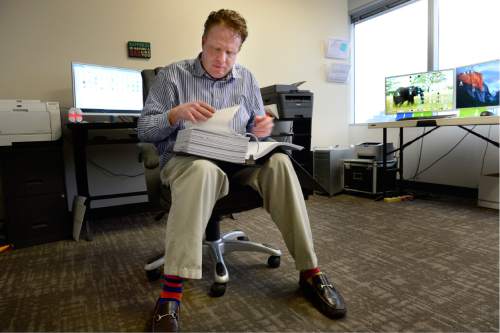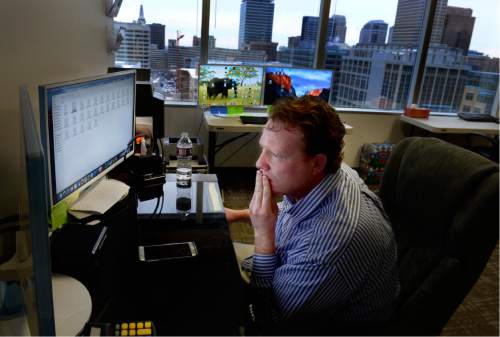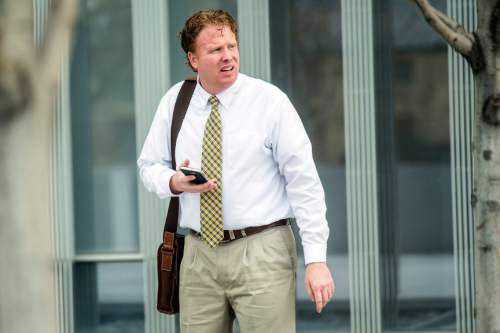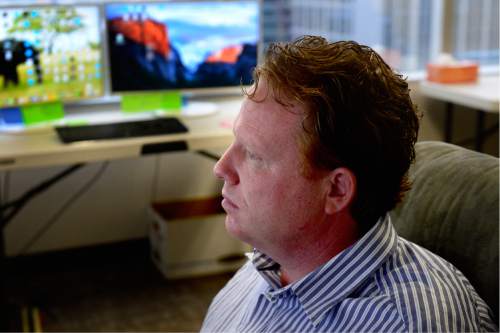This is an archived article that was published on sltrib.com in 2016, and information in the article may be outdated. It is provided only for personal research purposes and may not be reprinted.
The testimony of a witness for Jeremy Johnson in his federal court trial on Thursday supported Johnson's contention that the St. George businessman didn't try to hide the problems his online marketing company was facing — or the plan to reverse them.
But the testimony of Jeremy Livingston, of Rigby, Idaho, contradicted that of a government witnesses who claimed Johnson had conned him.
Livingston was the co-owner of Mach 1, which helped Johnson and his company called I Works obtain credit card processing accounts through a California corporation called CardFlex Inc. in 2009 and 2010.
Johnson and two co-defendants are on trial on 86 charges related to alleged bank fraud involving the accounts that Mach 1 helped set up through CardFlex.
The charges allege that Johnson and others formed dozens of companies, using names and information from employees and family members so they couldn't be connected to Johnson and I Works. They then allegedly used false information to open credit card processing accounts at Wells Fargo Bank.
That was necessary, prosecutors claim, because I Works' own accounts had been shut down because of excessive rates of credit card chargebacks.
Livingston, who described himself as a friend of Johnson, testified that at a meeting with CardFlex owner Andy Phillips, Johnson had been open about I Works chargeback problems.
Phillips offered help and came up with a "structure," what Livingston described as "you break up your processing into various entities."
Johnson, who is acting as his own attorney, asked whether setting up separate entities was part of the solution for solving the chargeback problem.
"Yes, it was," Livingston said.
Livingston's testimony was similar to that of his former business partner, Shane Fisher, earlier in the defense's case.
In calling Livingston and Fisher to the stand, Johnson was trying to counter prosecution witnesses like Phillips, who said Johnson tried to hide his involvement by forming what the government calls "shell companies."
On Wednesday, Phillips testified that he had been told by Johnson and others that I Works would be offering support services such as credit card processing for small, home-based business whose owners wanted to market products online.
Livingston, however, said he had never heard of this "Tupperware" plan of serving small businesses.
The defendants, which include former I Works managers Ryan Riddle and Scott Leavitt, also called back to the stand Martin Elliott, a Visa USA official who had testified on the first day of the trial.
During Elliott's first appearance, U.S. District Judge David Nuffer refused to allow Johnson to play a recording of a phone call that involved Elliott, Johnson and others discussing I Works' chargeback problems.
Johnson claimed the audio contradicted parts of Elliott's testimony.
Nuffer later reversed his decision, and Elliott was called back to the stand on Thursday, when the recording was played for the jury.
The calls show Elliott knew that independent marketing firms, called affiliates, were causing chargebacks problems for I Works. He also acknowledged in testimony that he knew at the time of the meeting that I Works had been placed on a list of companies with high rates of chargebacks.
During Wednesday's testimony, Phillips — who had been called by the defense — said Johnson "darn near destroyed my company."


